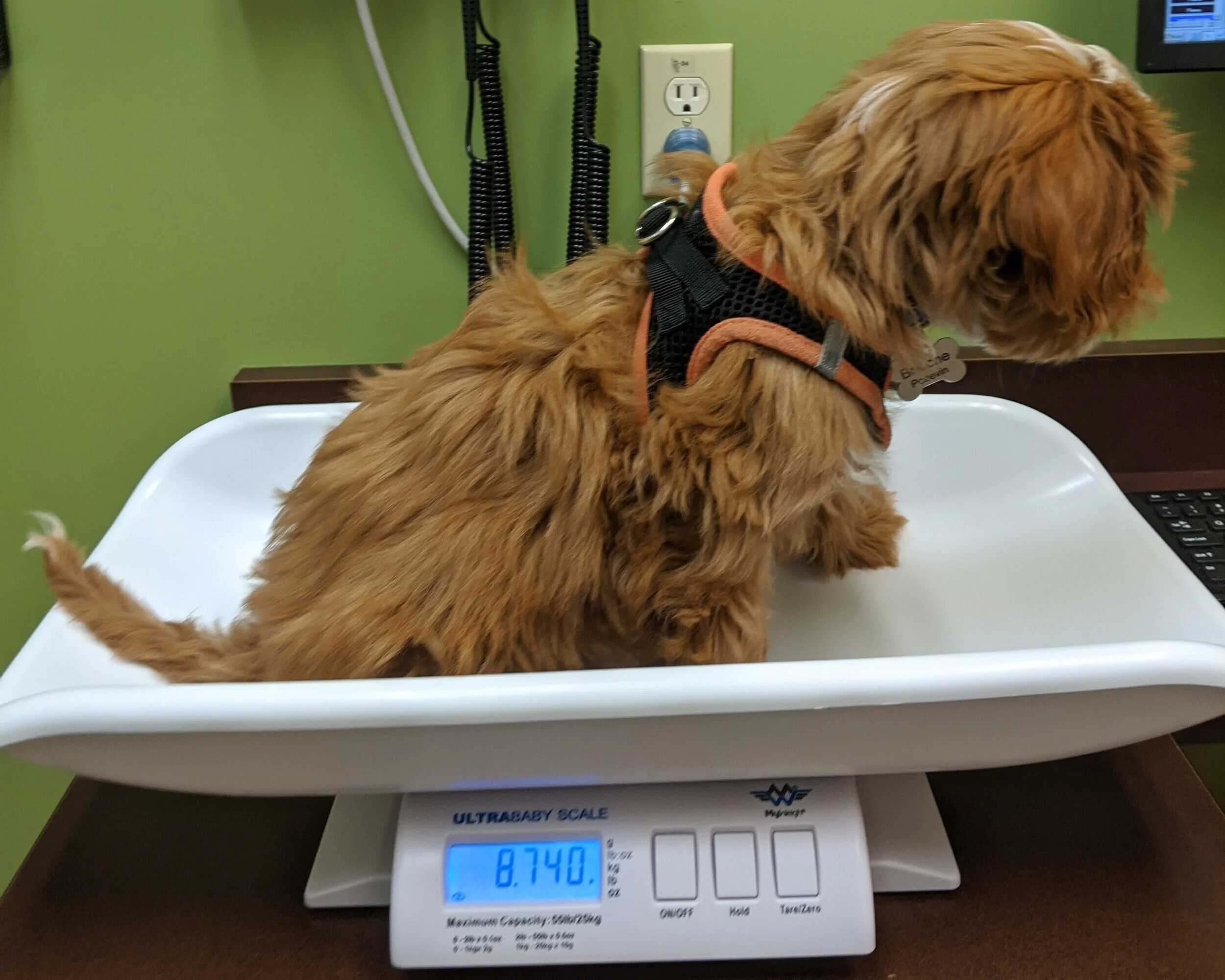“My health is my parents’ #1 priority! ”
Ahh, a healthy dog is a happy dog
Vet and health insurance considerations, and vaccinations details & timing
Build a strong foundation for your dog’s health
Prior to taking home your puppy or dog, we suggest conducting research on a veterinarian, health insurance, and vaccinations. Key considerations below.
Veterinarian
It is important to go the extra mile in finding a solid vet. You are trusting a stranger with a member of your family. Find one for the long term.
Ways to find a vet:
Word of mouth (best) - ask friends or dog owners outside when you see them about their vet, and if they would recommend
Ask your breeder - they most likely did their due diligence in finding a good vet, and your dog may already be used to them
Search online and trust reviews - plenty of animal clinics and hospitals on the internet
When to see a vet:
Immediately after picking up your dog from adoption or breeder to determine if there are any health problems you should be aware of. Your dog may need vaccinations and microchipping. The vet will also provide details on deworming medication your dog may require on a monthly basis.
Looking ill or unusual bowel movements are indicators to either see your vet, or contact your vet to determine if a visit is required
Changes in routine, meaning going to doggy daycare, moving to a new state, boarding your dog, etc may trigger a visit because your dog may require shots or vaccinations it currently does not have
Don’t be shy to ask about costs of office visits, vaccinations, or other reasons to see a vet. Costs do add up!
Health Insurance - it is not for every dog
Insurance is an investment. We hope we don’t need to use it, but if we do, we are glad we have it. Insurance costs do add up, and may not always be worth the value for your situation because of pre-existing conditions, meaning the condition occurred or showed clinical signs or symptoms (diagnosis is not required) before your dog’s coverage started, including waiting periods.
Pre-existing conditions are not covered by any pet insurance company.
Example: If you go to the vet, and your dog already has arthritis, any future expenses related to or caused by arthritis are not eligible for coverage and reimbursement.
With that said, we believe health insurance is best for dogs that are healthy at the time of signing up for health insurance.
Coverage - always check insurance company’s coverage details before deciding, as they all vary (sometimes varies by state as well).
Typically covered: accidents, illness tests, congenital conditions, cancer, emergency care
Typically not covered: wellness (annual exams, vaccinations, or teeth cleaning), neutering or spaying
Hereditary Illnesses: Not all insurance companies cover this. For instance, HealthyPaws and Trupanian do with a waiting period, while Nationwide does not (list of exclusions by breed).
Pet insurance comparison charts - Comparison 1 and Comparison 2
Key Insurance Terms:
Premium: dog owner’s cost per month
Deductible: this is the amount the dog owner is responsible for prior to the coverage starts, whether its annual or lifetime
Co-Pay: how much the owner pays, once deductible is met (Co-Pay% + Coverage% = 100%)
Coverage: how much the insurance company will pay, once your deductible is met (Co-Pay% + Coverage% = 100%)
Waiting Period: time you and your dog must wait prior to insurance kicking in (accidents or illnesses during this time are not covered, and will mostly be considered pre-existing)
Vaccinations - Please speak with your vet about vaccinations, as we are not doctors
There are a number of vaccinations for dogs, but not all of them are required. Please check with doggy day cares or boarding with which vaccines they require. For example, while the flu shot is not required in California, most doggy daycares require proof of the vaccination.
Your vet will of course have this information, and will set a schedule with you based on the optional shots you want. For instance, if you want leptospirosis and canine influenza, the vet may give them at different appointments. If your dog has any allergic reactions, they will be able to pinpoint which one, instead of guessing between the two vaccinations.
Schedule:
6-8 weeks: Round 1 of DAP (Distemper, Adenovirus/Hepatitis, Parvovirus). Sometimes referred to as DHPP if Parainfluenza is included.
10-12 weeks: Round 2 of DAP or DHPP (4 weeks after Round 1)
14-16 weeks: Round 3 of DAP or DHPP (4 weeks after Round 2)
Rabies: 12-24 weeks, and every 1-3 depending on state laws
DHPP: Every 1-2 years
Required:
Distemper, Adenovirus/Hepatitis, Parvovirus (DAP)
Rabies
Optional - do I need it?
Bordetella - Yes, if you plan to board your dog
Parainfluenza - Yes, if you plan to kennel your dog
Leptospirosis - Yes, if you think your dog may be exposed to urine-contaminated water, soil, or bedding
Canine Influenza - Yes, if you believe there is a risk of your dog getting the flu. This is more prevalent in some states compared to others.



